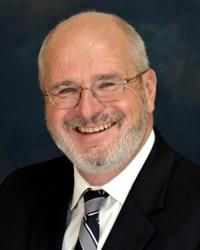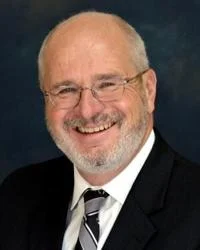History Casts A Long Shadow

John Krull, publisher, TheStatehouseFile.com
Ford did so less than a month after Nixon resigned from this nation’s highest office.
Nixon did so in disgrace. He quit when it became clear that there were more than enough votes in the U.S. House of Representatives to impeach him—and after several U.S. senators had informed him the Senate would convict him and remove him from office.
Criminal charges stemming from the varied offenses against the law that history has labeled “Watergate†also awaited Nixon. The likelihood that he would be convicted on those charges was so great that Nixon was reassuring aides and associates that he would be fine behind bars.
Some great writing had been done from prison, he said.
That’s where Ford stepped in.
He decided that the American people, who already had endured two years of Watergate controversy and hearings and more than a decade of tumult regarding the Vietnam War, could stand no more upheaval. He let Nixon off the hook, Ford said, so the nation could move forward.
The immediate public reaction to Ford’s decision was savage.
The new president’s public approval rating plummeted. Two years after the pardon, Ford faced Democrat Jimmy Carter in the 1976 presidential election.
Ford lost.
Lingering public anger over the pardon played a part in his defeat.
Over time, though, a new consensus emerged, shaped in many ways by Ford himself. He insisted that he never regretted the decision. He titled his presidential autobiography “A Time to Heal.â€
The nation, after all, came to agree with Ford.
For much of the past 45 years, most Americans have seen Ford’s decision to allow Nixon to escape legal judgment as an act of patriotism, a decision by a president to put the nation’s interests ahead of his own.
Recently, historians and other observers have begun to question Ford’s pardoning of Nixon.
Two words explain this reexamination.
Donald Trump.
The revelations in recent days of the myriad and indiscriminate ways Trump violated his oath of office as president, the Constitution and the rule of law itself have prompted a reevaluation of the decisive act of Ford’s presidency.
It now appears certain that Trump will be indicted on at least some of the charges the select committee on the Jan. 6 insurrection of the U.S. House of Representatives recommended the Justice Department pursue. He also may be in similar trouble for election tampering in Georgia.
And the distribution of his tax records suggests whole new avenues for possible prosecution.
It seems clear that Trump lied when he said—again and again—that an Internal Revenue Service audit prevented him from releasing his tax returns as every president for the last 50 years, including Nixon, has done. It’s also likely that he exerted pressure on the Treasury Department to prevent legally required audits of his finances.
But those are rather small considerations.
If Trump’s tax filings show that he accepted payment or had financial dealings with foreign businesses or investors during his presidency, he may have violated the Emoluments Clause of the U.S. Constitution. That clause prohibits presidents from accepting either money or gifts of value from foreign entities because the drafters of the Constitution, not unreasonably, wanted to be sure that the commander-in-chief worked for the American people, not some other nation.
If Trump did ignore the clause’s requirements, his wanton disregard for the Constitution he took an oath to uphold and defend could and should disqualify him from ever holding office again.
Trump’s willful and reckless spree of lawbreaking has prompted more than a few historians, legal scholars and students of this nation’s public affairs to ask again if Ford made the correct call regarding Nixon.
Their reasoning is that if Nixon had not escaped legal consequences for his transgressions, subsequent presidents—including Trump—might not have been so heedless regarding the restrictions the law and the office imposed on the office.
It’s a valid question—if for no other reason than it demonstrates that the decisions presidents make can outlive them, for good or ill, by generations or even centuries.
When Ford took the oath of office following Nixon’s resignation, he made a famous statement.
“My fellow Americans, our long national nightmare is over,†Ford said in his inaugural address.
No, it turns out.
Not quite.
FOOTNOTE: John Krull is director of Franklin College’s Pulliam School of Journalism and publisher of TheStatehouseFile.com, a news website powered by Franklin College journalism students. The views expressed are those of the author only and should not be attributed to Franklin College.
The City-County Observer posted this article without bias or editing.





